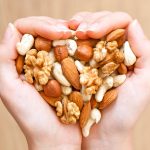Bloating, that uncomfortable feeling of fullness and swelling in the abdomen, is a common issue that many people experience after eating. While various factors contribute to bloating, including dehydration, overeating, or digestive disorders, one significant factor is the type of carbohydrates consumed during meals, particularly at breakfast.
The Role of Carbohydrates:
Carbohydrates are a primary source of energy for the body, found abundantly in grains, fruits, vegetables, and dairy products. They come in various forms, including simple sugars and complex carbohydrates. When we consume carbohydrates, they are broken down into glucose, which is used by the body for energy. However, some carbohydrates are more difficult for the body to digest, leading to fermentation in the gut and the production of gas, which can cause bloating.
Breakfast Foods that Cause Bloating:
- White Bread and Pastries: Foods made with refined flour, such as white bread, pastries, and muffins, are high in simple carbohydrates and low in fiber. These foods are quickly digested, causing a rapid spike in blood sugar levels and leading to bloating and discomfort.
- Cereal: Many breakfast cereals are processed and loaded with added sugars and artificial ingredients. These highly processed carbohydrates can disrupt digestion and cause bloating, especially when consumed in large quantities.
- Processed Breakfast Meats: Breakfast sausages, bacon, and ham are often high in fat and sodium, which can slow down digestion and contribute to bloating. Additionally, processed meats contain additives and preservatives that may irritate the digestive system.
- Sweetened Yogurt: Flavored yogurts often contain added sugars and artificial sweeteners, which can ferment in the gut and lead to bloating. Opting for plain, unsweetened yogurt or Greek yogurt can help reduce bloating.
- High-Sugar Breakfast Bars: Many breakfast bars marketed as healthy options are actually loaded with sugars and refined carbohydrates. These can cause a rapid increase in blood sugar levels, leading to bloating and energy crashes later in the day.
Breakfast Foods that Do Not Cause Bloating:
- Oatmeal: Oatmeal is a nutritious breakfast option that is high in fiber and complex carbohydrates. It helps stabilize blood sugar levels and promotes healthy digestion, reducing the likelihood of bloating.
- Eggs: Eggs are a rich source of protein and essential nutrients, making them an excellent choice for breakfast. They are low in carbohydrates and do not typically cause bloating when consumed in moderation.
- Fruits and Vegetables: Fresh fruits and vegetables are packed with fiber, vitamins, and minerals, making them ideal for breakfast. They aid digestion, promote gut health, and reduce bloating.
- Whole Grain Toast: Opting for whole grain bread over refined white bread can help prevent bloating. Whole grain bread is higher in fiber, which promotes satiety and aids digestion.
- Smoothies: Homemade smoothies made with leafy greens, fruits, and protein sources like yogurt or protein powder can be a nutritious and easy-to-digest breakfast option. Blending ingredients helps break down fibers, making them easier on the digestive system.
Conclusion:
When it comes to preventing bloating, choosing the right carbohydrates for breakfast is crucial. Opting for whole, unprocessed foods that are high in fiber and nutrients can promote healthy digestion and reduce discomfort. Avoiding highly processed and sugary breakfast foods can help prevent bloating and support overall well-being. Remember to listen to your body and pay attention to how different foods make you feel to determine the best breakfast options for you.










